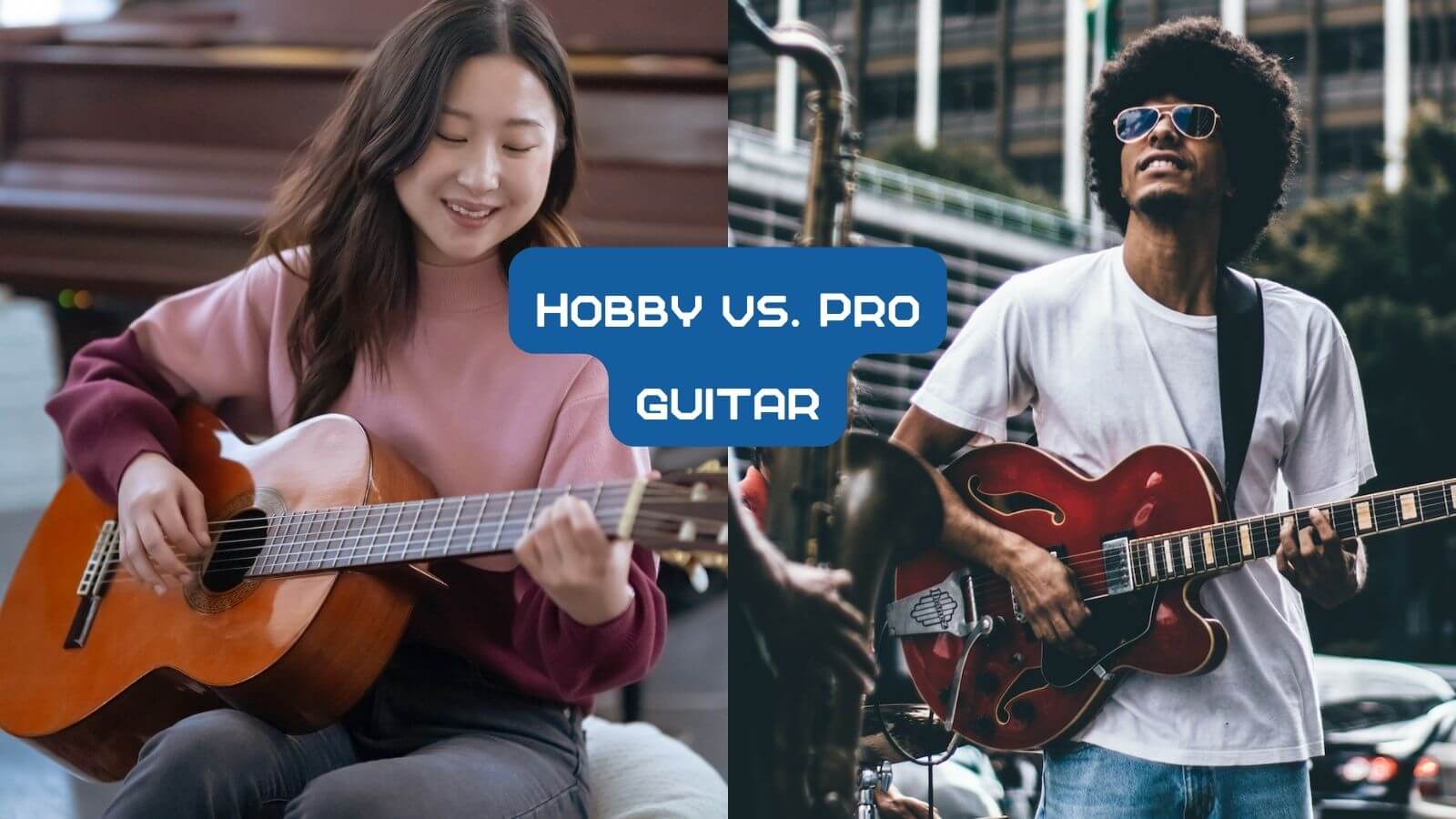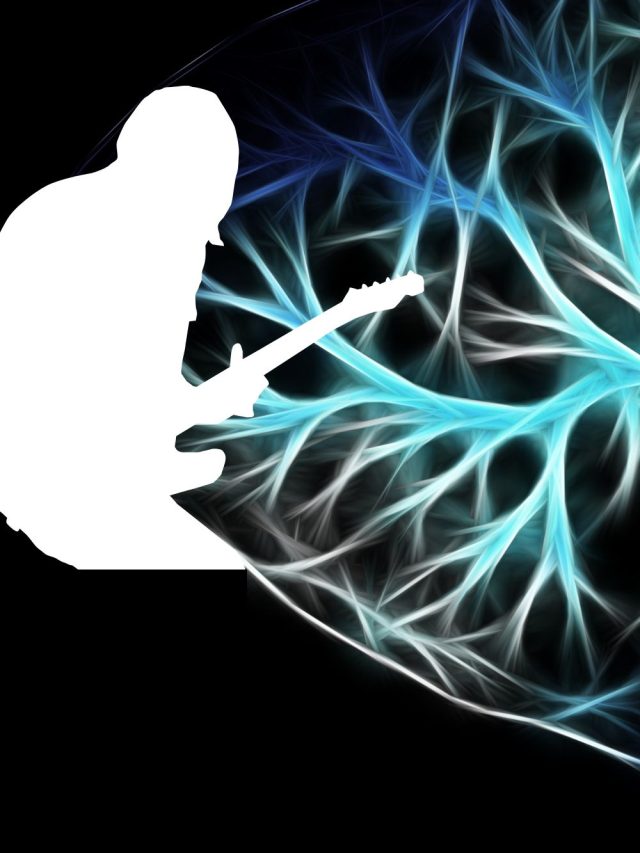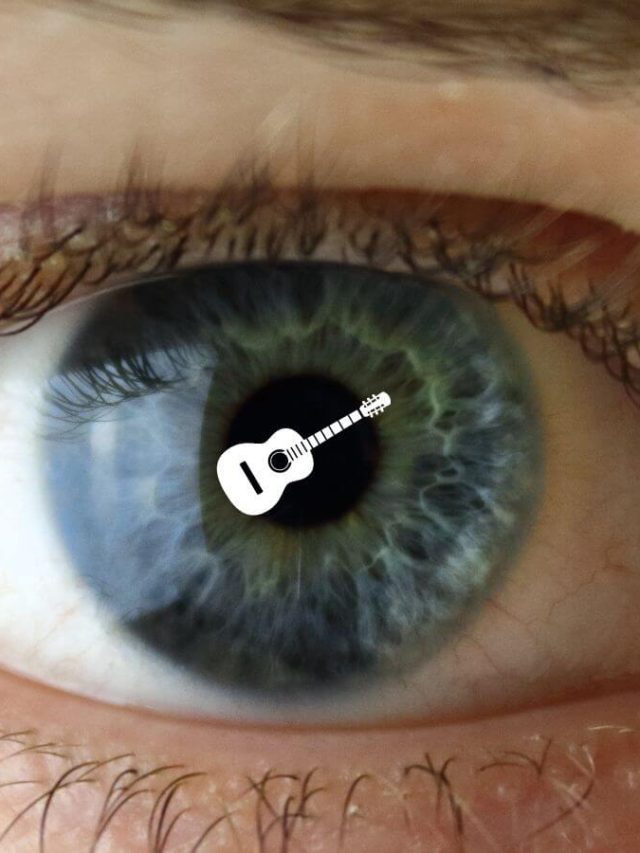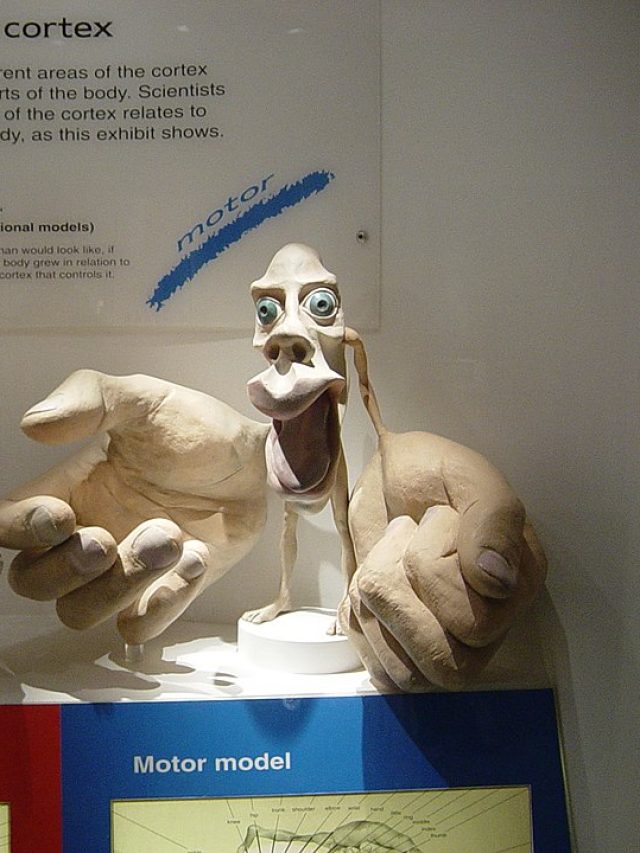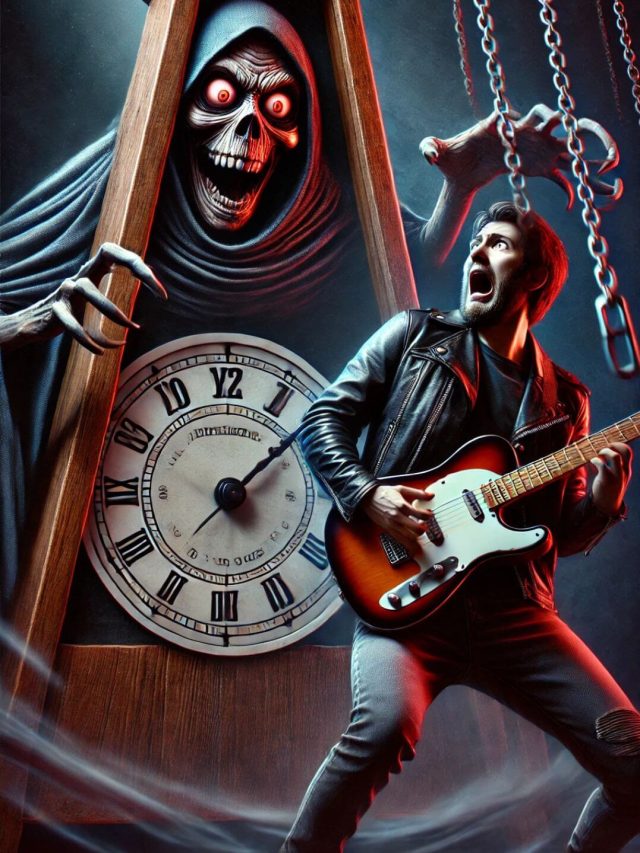Logically, when you play well, people often say “you should play live” or “you should teach” or “record music”. While this sounds legit, there is an important conflict that you need to consider – the source of motivation to play the guitar. The motivational crowding out theory tells us why Hobbies sometimes make bad professions. Simply put, the professional aspects undermine personal reasons for the hobby and destroy your passion for the hobby.
There is a reason why many hobby guitarists who were once very passionate about playing, had good skill, and loved jamming suddenly lose interest when they become a professional and use their guitar to make money.
We have 2 types of motivations[1] that create 2 types of rewards.
Intrinsic motivation is doing something because you want to do it for personal reasons and private enjoyment. It’s an inward force. Extrinsic motivation is doing something because a force outside of your brain and body is motivating you to do it. Both types of motivations are linked to intrinsic or extrinsic rewards.
Intrinsic rewards are positive emotions, sense of achievement, and feeling aligned with your choices. Extrinsic rewards are money, public appreciation, view count, likes, and external validation.
When you become a professional musician, you start playing guitar for extrinsic rewards like money and public validation. When you are a hobby guitarist, you play for positive emotions like enjoyment and thrill and a personal sense of achievement. Psychology explains why making your hobby into a profession can sometimes kill your motivation, even when you were extremely passionate about the hobby. The motivational crowding-out theory is a slightly counter-intuitive observation[2] that doing an activity for external rewards when you already have intrinsic motivation can sometimes undermine that intrinsic motivation and reduce overall motivation. Eventually, incentives end up reducing (not increasing) your overall enthusiasm to practice and play.
One might assume that having both types of rewards can amplify motivation to play the guitar, but we often experience reduced motivation when external rewards are offered for a behavior which we would’ve anyway done without those rewards.
So if you are considering if you should convert your hobby guitar playing into a profession of teaching, YouTube, Streaming, recording, or live performance, there will be a change in what motivates you to play. Consider the reasons you play, if it is for joy or relaxation, you might want to maintain that joy. If you are still curious and excited to play, perhaps you won’t experience a drop in motivation, try it out and see if you like it. Motivational crowding out is not guaranteed and it doesn’t occur in every circumstance. Let’s explore those circumstances.
Avoid using your skill level to decide if you want to go pro or go hobby. That might misguide you because skill can only answer: “can I do it?” and not “will I enjoy it for a long time?”. Your motivation depends on the second question in most cases.
One explanation[3] for motivational crowding out is that the size of external rewards re-calibrates your future motivation to do an activity. So if you played guitar everyday and loved relaxing to playing or taking up challenges, and suddenly start posting content on YouTube and see there are no views, the lack of views will determine your future motivation to play. If the views are high, you’ll be motivated, if the views are low, you’ll be demotivated.
There are 2 components to this process. One is a status-signaling component and the other is a controlling component. When external rewards take over intrinsic rewards, people feel a loss of control because now the rewards are controlling your practice. People don’t like this, they like to be in control so the external rewards are seen as a threat with some pros. The status-signalling component enhances self-esteem by learning that external rewards are a positive judgment on your skill and ability. So that status-signal increases motivation if it is high. For most people, a healthy balance of controlling and status-signalling is needed to maintain motivation.
As a professional guitarist, most external rewards are of 3 categories[4]. Not all of them reduce the motivation that came from a hobby mindset.
- Task-dependent rewards: Rewards like views, sales, and likes on your guitar recordings, band’s album sales, etc., are often proportional to the quality. Better quality generally gets better views. This type of an extrinsic rewards reduces intrinisic motivation because now there is pressure to perform and maximize gains which is incompatible with why you played guitar in the first place.
- Task-independent rewards: You are rewarded for playing a gig and get a fee for it, regardless of your performance. In such situations, you can still focus on enjoying your art and performance without feeling its about performance. Here, you may rationalize “I got to play for fun and still made money on it.”
- Performance rewards: You experience rewards when you reach a specific outcome. Say the launch of your album or YouTube channel is a performance reward, you experience external rewards only when you have completed the entire process of working on it. This type of reward also does not reduce intrinsic motivation. In fact, it may amplify your sense of achievement and create positive emotions and boost confidence and motivation.
This is the same reason why people lose their motivation to write professionally or lose excitement in writing when they only wrote for personal pleasure. When it becomes about money and validation, that personal pleasure becomes insignificant.
There’s another layer to differentiating a hobby from a profession that can kill motivation. A hobby creates a boundary between work and leisure. If you are working a lot, a hobby can act as a private, fun activity that creates a work-life balance. But when your work itself is music, your hobby no longer creates that difference. Eventually, you experience in a drop in work/life satisfaction and increase monotony. And increasing monotony can be a precursor to depression (which by definition is demotivating for effortful activities), burnout (overworking till you feel depleted and chronically tired), and dislike toward the activity.
The dislike after monotony is quite powerful. It shows that an activity that you considered a reward is now a punishment or source of negative emotions. Generally, negative emotions are more powerful than equal positive emotions. Experiments show that the hurt of losing 10 dollars is far greater than the joy of getting 10 dollars. We are more affected by what we once had and then lost.
What happens when you start disliking your instrument? One way out is to completely change the story you tell yourself about why you play. You can change your playing style, or learn a new instrument. Or focus on different kinds of activities so that you start dissociating your guitar with your previous emotions.
Research shows[5] that musical practice as a hobby improves well-being and mental health, but musical work generally harms mental health. One reason is musical work is driven by external incentives and many don’t succeed at reaching professional goals satisfactorily. This problem not only worsens mental health via depression, which demotivates, but it also creates a negative association between music, practice, and musical work. So professional musicians often get discouraged because instead of getting rewards for music, they feel punished.
If you’ve already lost motivation and become a professional guitarist or have started a journey of seeking rewards, follow some of these tips that will return that motivation to you. Even if you have just lost motivation as a hobby player, they will work.
Photo credits: Photo by Charles Parker: https://www.pexels.com/photo/positive-asian-woman-playing-guitar-in-room-6647550/ and Photo by Kaique Rocha: https://www.pexels.com/photo/man-playing-jazz-guitar-379962/
References
[2]: https://www.zora.uzh.ch/id/eprint/51951/
[3]: https://www.sciencedirect.com/science/article/abs/pii/S0065260108601306?via%3Dihub
[4]: https://psycnet.apa.org/doiLanding?doi=10.1037%2F0033-2909.125.6.627
[5]: https://www.tandfonline.com/doi/full/10.1080/09548963.2022.2058354


